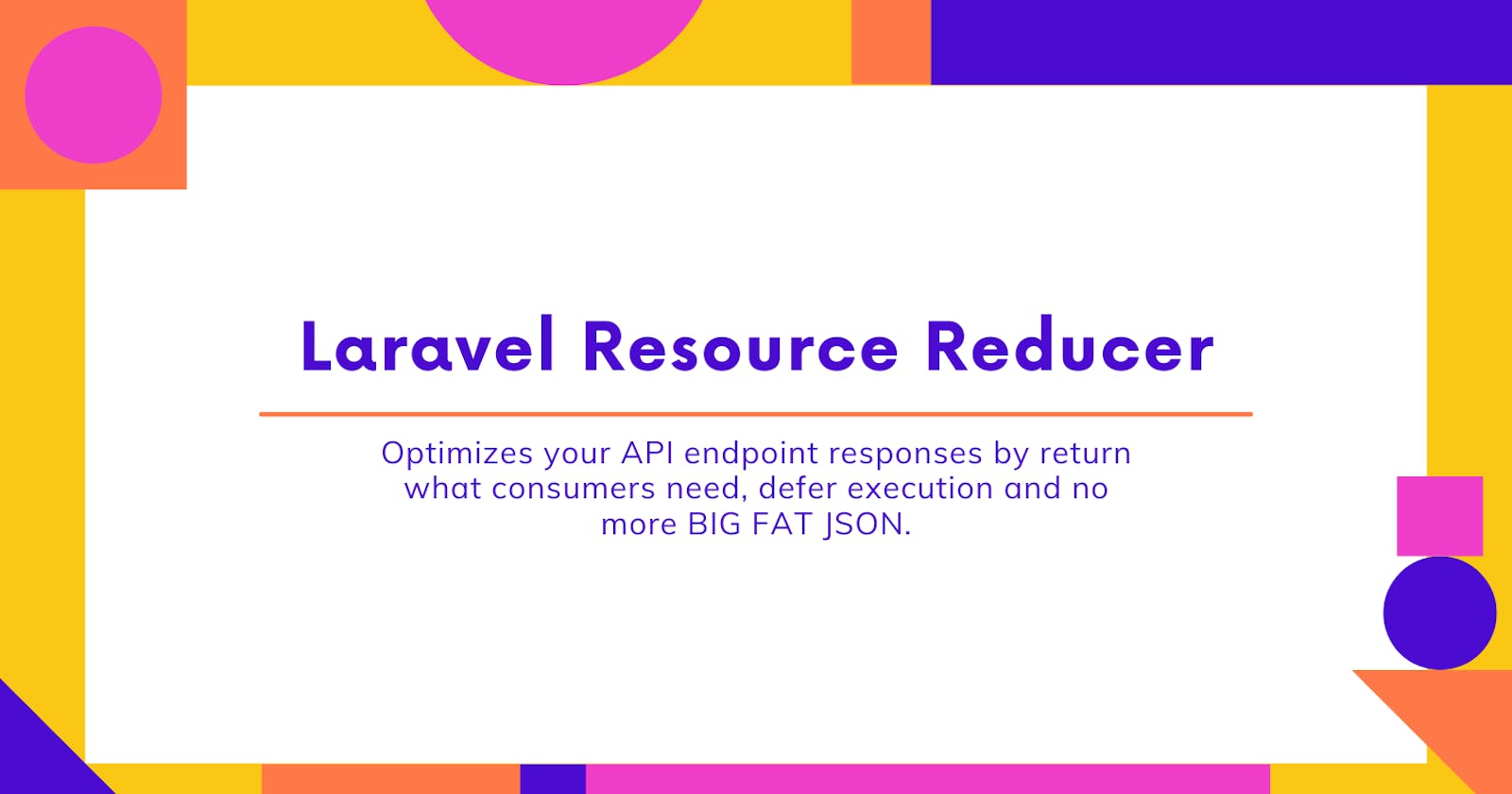Hey guys,
I'm delighted to share my latest work on the performance of your Laravel API endpoints 😉.
Check out: Laravel Resource Reducer 😎 / Documentation: https://reducer.shipsaas.tech/
Before delving into Laravel Resource Reducer, it's essential to understand the drawbacks of the existing Laravel Resource 👀.
The Laravel Resource
I assume that you all are already familiar with Laravel Resource, aren't you? If not, you can explore it here: https://laravel.com/docs/10.x/eloquent-resources
Simplest tl;dr:
Laravel Resource is a layer to compute your Eloquents into the Responses
Problems
Let's say, we have an endpoint v1/users which returns an array of users:
[
'data' => [
[
'id' => 1,
'name' => 'Seth Phat',
'email' => 'me@sethphat.com',
'created_at' => '2023-01-01',
'role' => 'ADMIN',
'avatar_url' => '...',
],
[
// ... user 2,
],
// ... more
],
]
Everything is suitable for the listing page, such as rendering users in the table.
However, if we want to use a dropdown of users on another page (for example, to assign a user as a reviewer), then, you won't need all the returned fields, you only need: id & name (or additionally, email)
\=> The CONs while reusing the above endpoint:
Redundant fields returned 🥲
Slower response 🥲
You will end up creating a new endpoint just for the dropdown 🥲 Development takes more time & the team has to maintain more 🥲
Moreover, if you have relationship(s) defined in your UserResource and you wish to bulk them up in the response, then you will need to do eager-loading before transforming UserResource , thus you'll have these CONs:
Always need to do the eager-loading in the outer layer 🥲
- And maintain that 🥲
n*n response size because it bulked up with enormous data 🥲
Definitely: slower response 🥲
Now that you know the current problems. Let's jump into the super solution 😎
Meets Laravel Resource Reducer
Laravel Resource Reducer helps you to optimize every API request by:
Reduce the response's size, get what you need ⭐️
Responses to API consumers faster 🚀
Computation only starts when required, save CPU & memory 😎
Built-in relationship access by using dot notation 👀
Eager-loading on steroids (automated eager-loading, no more N+1 pain) 🔋
A simple yet super effective method to skyrocketing your API responding times 🥰
If you know about GraphQL, To query for data, we need to define which fields we want to retrieve. Laravel Resource Reducer is heavily inspired from GraphQL approach. ❤️
Usage (from API Consumer)
Let's say, we have this endpoint: v1/users which returns User[]
User has these fields: id, name, email, avatar_url, created_at, role (relationship)
Simply add _f[] or _fields[] query param
Get
id,namehttps://my-api.com/v1/users?_fields[]=id&_fields[]=name
Get
id,email, and the role namehttps://my-api.com/v1/users?_f=id,email,role.name
Isn't it awesome? 😎
Implementation
Resource Reducer
class UserResource extends JsonReducerResource
{
public function definitions(Request $request): array
{
return [
'id' => fn () => $this->id,
'email' => fn () => $this->email,
'created_at' => fn () => $this->created_at,
'role' => RoleResource::makeRelation('role'),
];
}
}
Remember to wrap your fields with a closure, to defer execution 😎
Return responses
// UserController@index
return UserResource::collection($users)->response();
// UserController@show
return (new UserResource($user))->response();
The usage is as same as Laravel Resource 😉
Final words
If this package is helpful, please give it a ⭐️⭐️⭐️.
Consider using Laravel Resource Reducer to optimize & skyrocket your API endpoints 💪
Thank you and have a great day!

